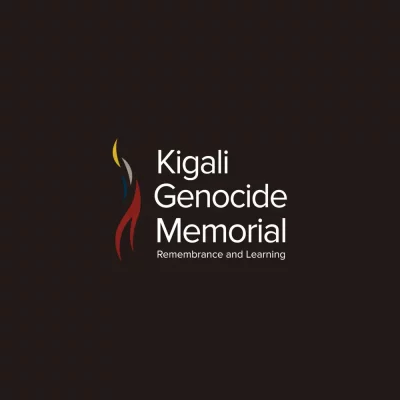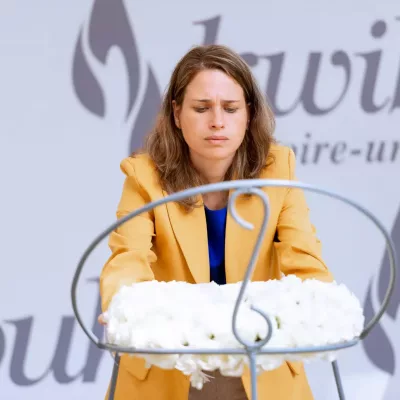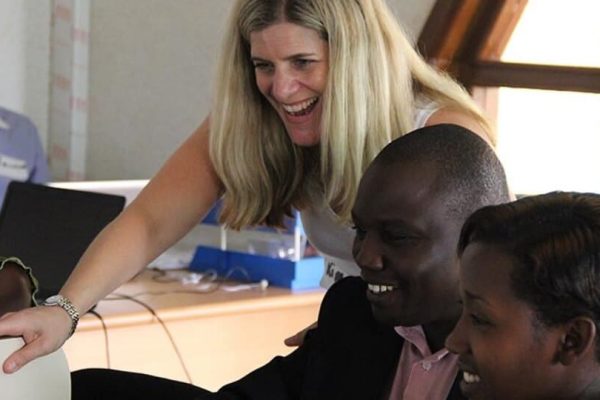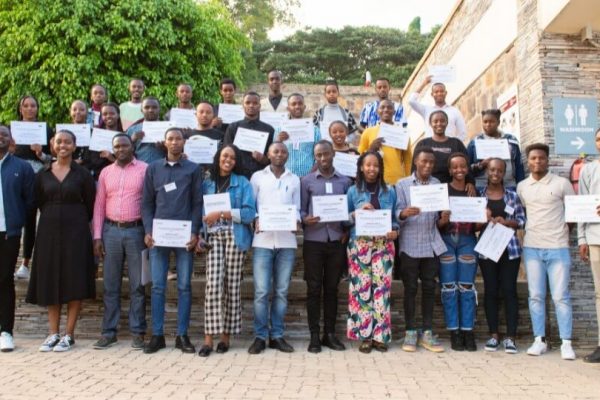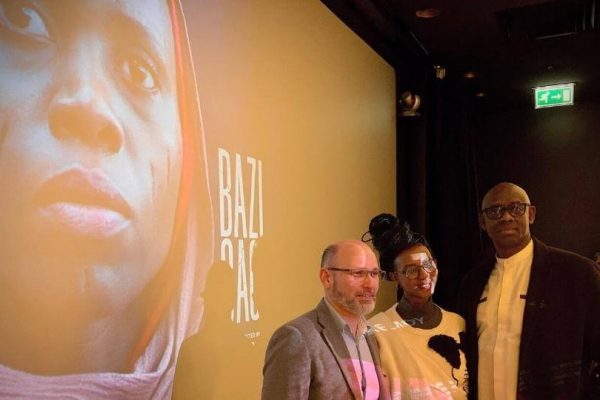On Saturday 18 June around mid-day, a group of 60 residents and community leaders from Muhazi, located in the Rwamagana District, visited Kigali Genocide Memorial to remember the victims of the 1994 Genocide against the Tutsi in Rwanda, and to learn more about the importance of fighting Genocide ideology.
“We visit memorials so we can learn more about our history. Genocide happened. The next step is to make sure that it will not happen again. People should not let hatred, religious beliefs or cultural differences lead conflict or killing. It is very important for people to learn about the history of our country so that they can really understand how genocide was organised, and what we can do as Rwandans to achieve a peaceful and positive future.” Egide Hanyurwimfura, Executive Secretary of Muhazi, Rwamagana District.
“It is very important to visit the memorial because it mainly helps us to know what really happened in the Genocide, especially for those who were not yet born or young. I think we lost so many things back then, which is why we need to work and focus more on activities that can promote towards development.” Jean D’Amour Ngirumpatse, resident from Muhazi, Rwamagana District.
“I think memorial give hope and teach history. It really keeps the spirit of remembering what Genocide against Tutsi. It also helps to let bad thinking that can led to killings but concentrate on constructive ideas towards building our nation.” Fidele Nzabonimana, resident from Muhazi, Rwamagana District.
“I have seen a lot of things in the memorial’s exhibition, but most of it is not new to me as I was 36 during the Genocide. I think Rwandan government should focus more on youth and teach them the history, because we are getting old and some other old people teach their children genocide ideology, which can sometimes be seen in some cases among little children.” Budensiyana Nyiransangwa, 58, resident from Muhazi, Rwamagana District.
“I think that one crucial act that can help is that perpetrators should request for forgiveness and survivors should forgive. People should not fear visiting memorials because it is a place of peace. My particular message to youths is participate a lot in peace building activities as they are future Rwandans. Parents should tell the real truth of Rwandan history so that it will not happen again, our past is bad but we can stand together to build the future.” Mary Dukunde, 45, resident of Muhazi, Rwamagana Disctrict.

